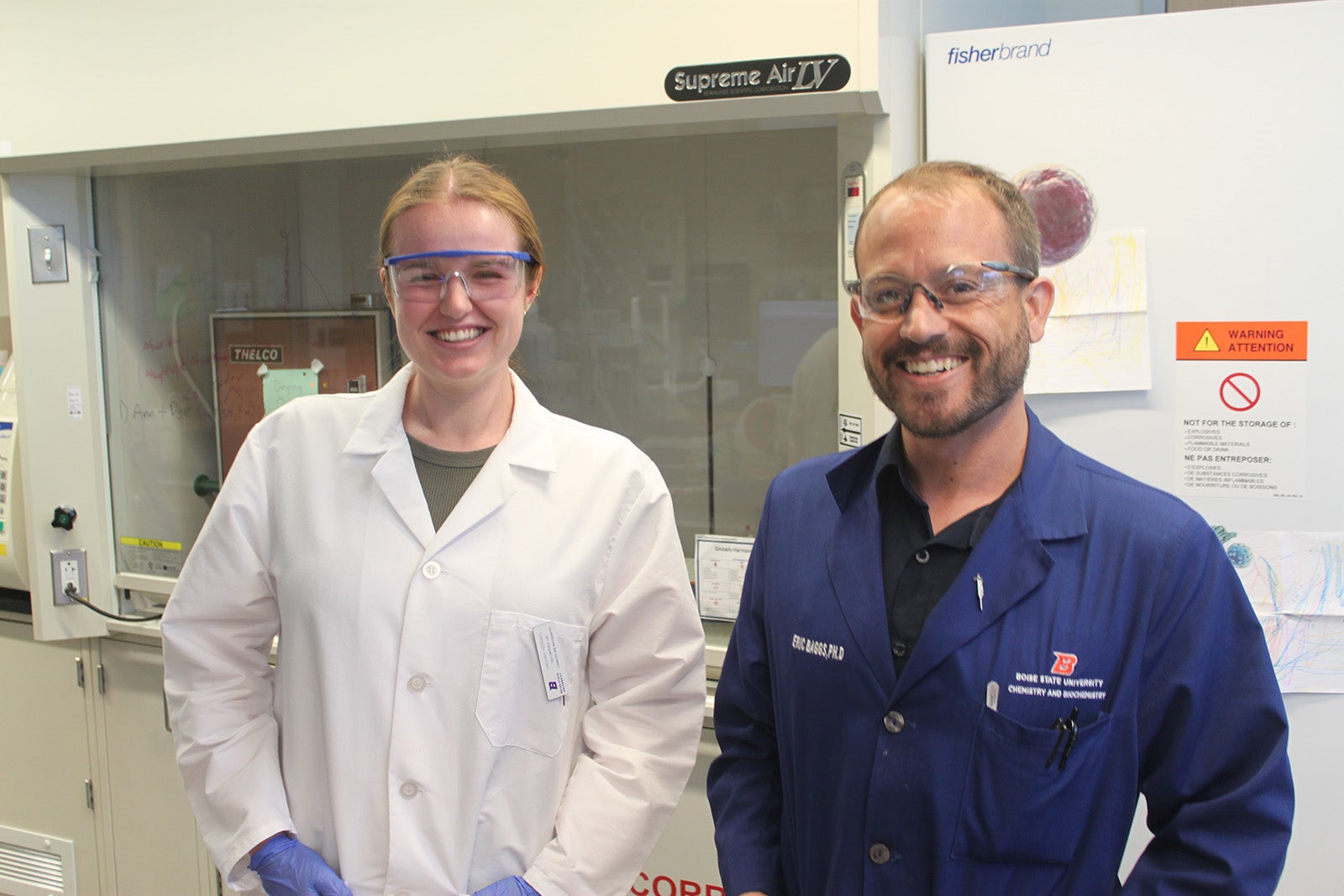
This summer at Boise State, 17 high school students in the American Chemical Society (ACS) Snake River Section will conduct research through its Project SEED program. The society’s program, which stands for “summer experiences for the economically disadvantaged,” has provided hands-on summer research experiences in STEM to over 13,000 high schoolers across the U.S. since 1968.
High school students spend 10 weeks in an industry lab or at host institutions like Boise State working alongside principal investigators and qualified mentors on cutting-edge research projects. In addition to the technical skills learned in the lab, students will participate in professional development activities to enhance skills in time management, teamwork and research presentation. Webinars cover personal and chemical safety, career exploration, college readiness, resume building, mental health and wellness. The summer experience culminates in a poster presentation where students present their research at the Idaho Conference on Undergraduate Research.
Don Warner, a professor in the Department of Chemistry and Biochemistry, is the project’s coordinator. He placed 17 students this year, and eight are returning participants. He received 70 applications and conducted 24 initial interviews to fill the nine open spots. Two students are going to Northwest Nazarene University to work with Jerry Harris on synthesizing and characterizing zinc oxide nanoparticles with enhanced antimicrobial properties. Two more will go to Danny Xu’s lab at Idaho State University’s Meridian campus to research the effects of Lunar and Martian regolith on zebrafish.
The remaining 13 students will work in laboratories across the Boise State campus. The principal investigators and their projects are:
- Oliviero Andreussi: Computational study of materials for electro-catalysis
- Leonora Bittleston: Exploring the effects of leaf chemistry on microbial colonization
- Eric Brown: Development of molecules that inhibit a bacteria’s ability to cause disease
- Ken Cornell: Analysis of antimicrobial activity of nanoparticles and organometallic complexes
- Jenée Cyran and Brian McClain: Developing innovative physical chemistry lab modules
- Owen McDougal: Chemistry of food systems
- Konrad Meister: Cool molecules – Understanding the mode of action of ice-binding macromolecules
- Don Warner: Synthesis of small molecules for inhibition of tumor metastasis
- Claire Xiong: Sodium ion batteries
Participants in the program receive a stipend for their efforts, providing low-income students the opportunity to participate while earning money to help support their families. The funding in 2024 is largely from the American Chemical Society, but also made possible by Northwest Nazarene University, the ACS Snake River Local Section, and Boise State’s College of Arts and Sciences, research and economic development, materials science and engineering, and chemistry and biochemistry. Some of the program’s graduates also will receive scholarships from Project SEED to help fund their undergraduate education.
Learn more about Project SEED’s impact on the ACS website.